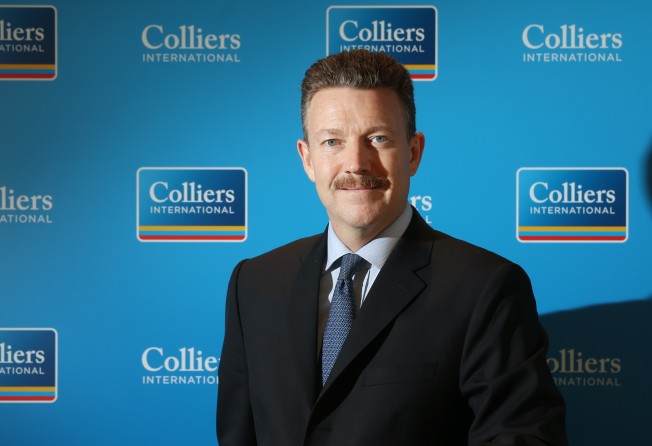Hong Kong property expert sees year of change and opportunity ahead
Nigel Smith of Colliers is cautiously optimistic on the 2016 outlook

Nigel Smith has big plans for his new role as managing director of global commercial real estate company Colliers International's Hong Kong office. Since taking the helm in September he’s been executing on strategy that he says will entail major new investments with the aim of moulding the firm into a “differentiator” through enterprise and creativity. An expert in office leasing, marketing and design, Smith has worked on a number of trophy projects and some of the tallest buildings in the region, including Taiwan’s TAIPEI 101, Hong Kong’s ICC, Shenzhen’s Ping An IFC and Beijing’s China World Tower. He sat down with Property Post to talk about the market outlook and how he plans to grow Colliers business in the new year.
What is your outlook for the market this quarter, and next year?
This year as a whole, everything except retail has been going up, compared with the rest of the world. Of course, the one that hasn’t gone up is retail, and we know primarily why: the lack of tourists, the anticorruption in China, and many other reasons. Retail rents have fallen 25 per cent and capital values 24 per cent. For this autumn, everything across the board will be relatively flat. So, I think we’ve seen our increases.
What do you perceive will be the effect of the US raising interest rates?
There will be a small rise to start with and all the rises will be relatively small, maybe 25 basis points...and a total of 100 basis points for 2016.
A lot of the potential increase in interest rates has been factored in - some of those dampening of rents has been factored in. Inevitably it’s going to affect residential. but more importantly it’s going to affect investment.
Which markets will be affected most?
It’s hard to say, probably luxury residential and investment as a whole. But investment covers all the sectors. I don’t see them being affected dramatically. What it will do, looking from an institutional investment point of view, is open up other sectors such that institutional funds will start to consider the industrials as a core asset class in its own right.
Why do you think the office space sector is doing relatively well right now, despite the downturn?
I think it has a huge opportunity going forward still - many companies see Hong Kong as its springboard into China. I see places or districts like Qianhai as just helping, not taking away, because the business that will be going on in that area in terms of financial business will have a positive knock-on effect.
The quality of buildings in Hong Kong is very high, the accessibility to infrastructure, hotels, airports, hospitals and schools is very good. And people enjoy this work environment. It’s safe, it’s secure. I think there is still that opportunity for Hong Kong to continue to grow.
What do you see as the main challenges for Hong Kong’s property market moving forward?
What’s driven some of the longer cycles in the other cities, particularly Europe but also America’s, is the institutional ownership. Hong Kong is very different - nearly all the buildings are owned by individuals, or individuals who are chairman of companies. They’ve been able to drive a lot shorter lease terms because they saw the volatility in the market, and this was a positive thing - positive and negative you can argue.
As Hong Kong matures, what we’re seeing is a stabilising in the rentals. We’ve still got plenty of land per say and we’ve got new areas such as North Lantau coming. But that over time will ease the volatility of the markets, which is a very good thing.
What is your vision for Colliers?
Our vision is to grow the business. An enterprising and creative industry is one that our clients want. And we believe that there is still a great deal of market share that we can start to take off our competitors.
The first way we are going to do that is increase the visibility of our brand. What we want to do is grow our enterprising and creative side as a differentiator.
We’re going to focus on learning development, research, and we’re going to focus on our people. My belief is that if I can create clearer career paths for our staff, give them the tools to be more effective, then we can grow our business substantially. We’re expanding, we’re looking at M&A activities.